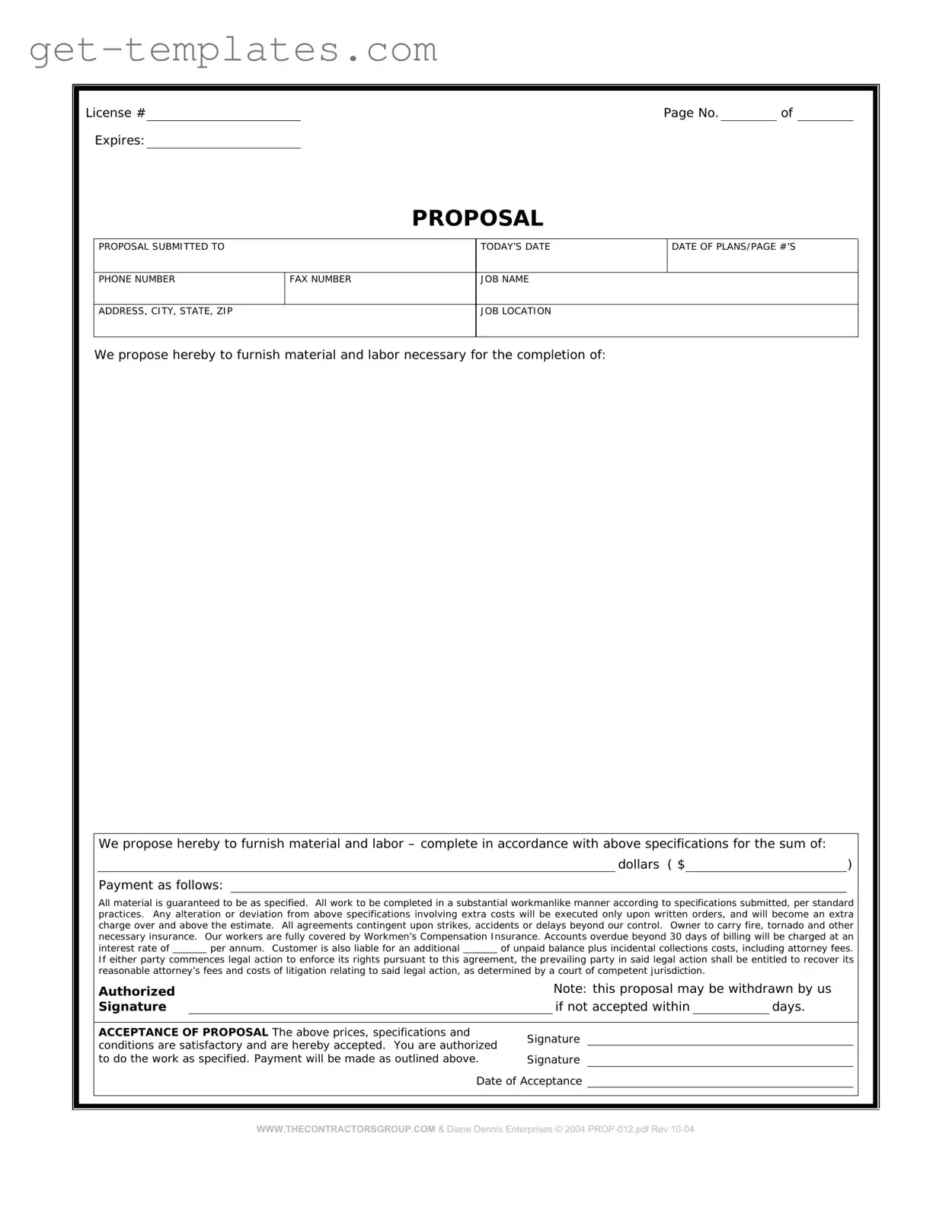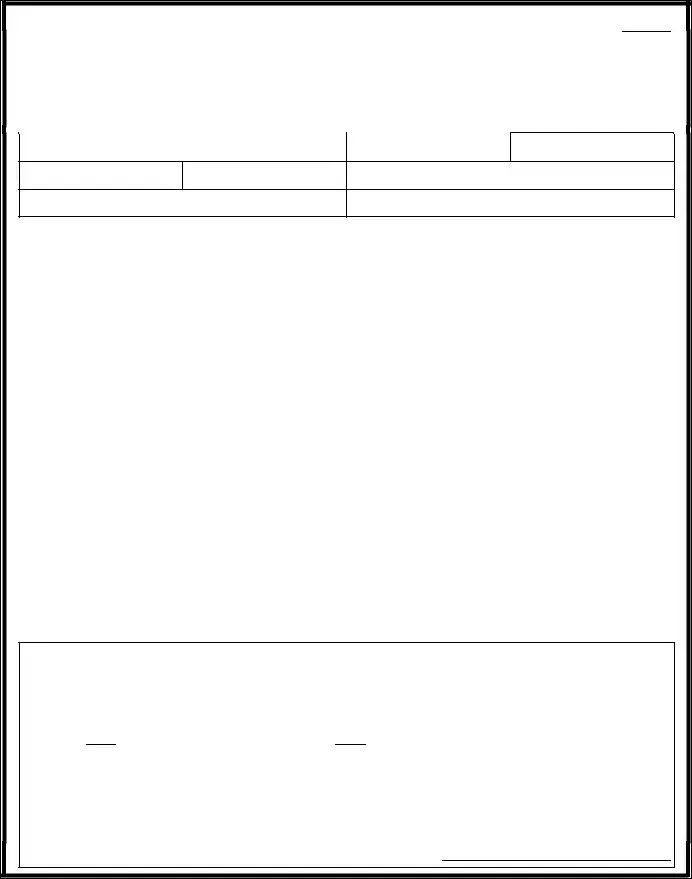A construction proposal form is a document used by contractors to outline the details of a construction project. It typically includes information such as project scope, timelines, materials, labor costs, and payment terms. This form serves as a formal offer to a client, detailing how the contractor plans to execute the project.
The construction proposal form is crucial for several reasons:
-
It provides clarity on the project's scope and expectations.
-
It helps in establishing a budget and timeline.
-
The form serves as a legal document that can protect both the contractor and the client.
-
It can help prevent misunderstandings and disputes later in the project.
A comprehensive construction proposal form should include the following key elements:
-
Project Description:
A detailed overview of the work to be performed.
-
Scope of Work:
Specific tasks and responsibilities of the contractor.
-
Timeline:
Estimated start and completion dates.
-
Cost Estimate:
Breakdown of materials, labor, and any additional expenses.
-
Payment Terms:
How and when payments will be made.
-
Contractor Information:
Contact details and qualifications of the contractor.
-
Client Information:
Contact details of the client or project owner.
To create a competitive construction proposal form, consider the following tips:
-
Research similar projects in your area to understand pricing.
-
Clearly outline your unique selling points, such as experience or specialized skills.
-
Provide a detailed breakdown of costs to enhance transparency.
-
Include references or testimonials from previous clients to build trust.
Yes, a construction proposal form can be modified after submission, but it requires mutual agreement between the contractor and the client. If changes are necessary, it is best to document them in writing and have both parties sign off on the revisions. This ensures clarity and helps avoid disputes later on.
Once a construction proposal form is accepted, the next steps typically involve:
-
Drafting a formal contract that outlines the agreed-upon terms.
-
Scheduling a project kickoff meeting to discuss timelines and expectations.
-
Obtaining any necessary permits or approvals required for the project.
-
Beginning the construction work as per the agreed schedule.
While it is not strictly necessary to have a lawyer review your construction proposal form, doing so can be beneficial. A legal professional can help ensure that the document complies with local laws and regulations, and that it adequately protects your interests. This is especially important for larger projects or when dealing with complex terms.
A construction proposal form can help manage project risks by clearly defining responsibilities and expectations. By detailing the scope of work, timelines, and payment terms, the form minimizes ambiguity. Additionally, including clauses that address potential changes or unforeseen circumstances can provide a framework for handling issues that may arise during the project.
Templates for construction proposal forms can be found through various online resources. Many construction industry websites, legal service providers, and business document platforms offer free or paid templates. It is advisable to choose a template that aligns with your specific needs and to customize it to reflect the unique aspects of your project.


